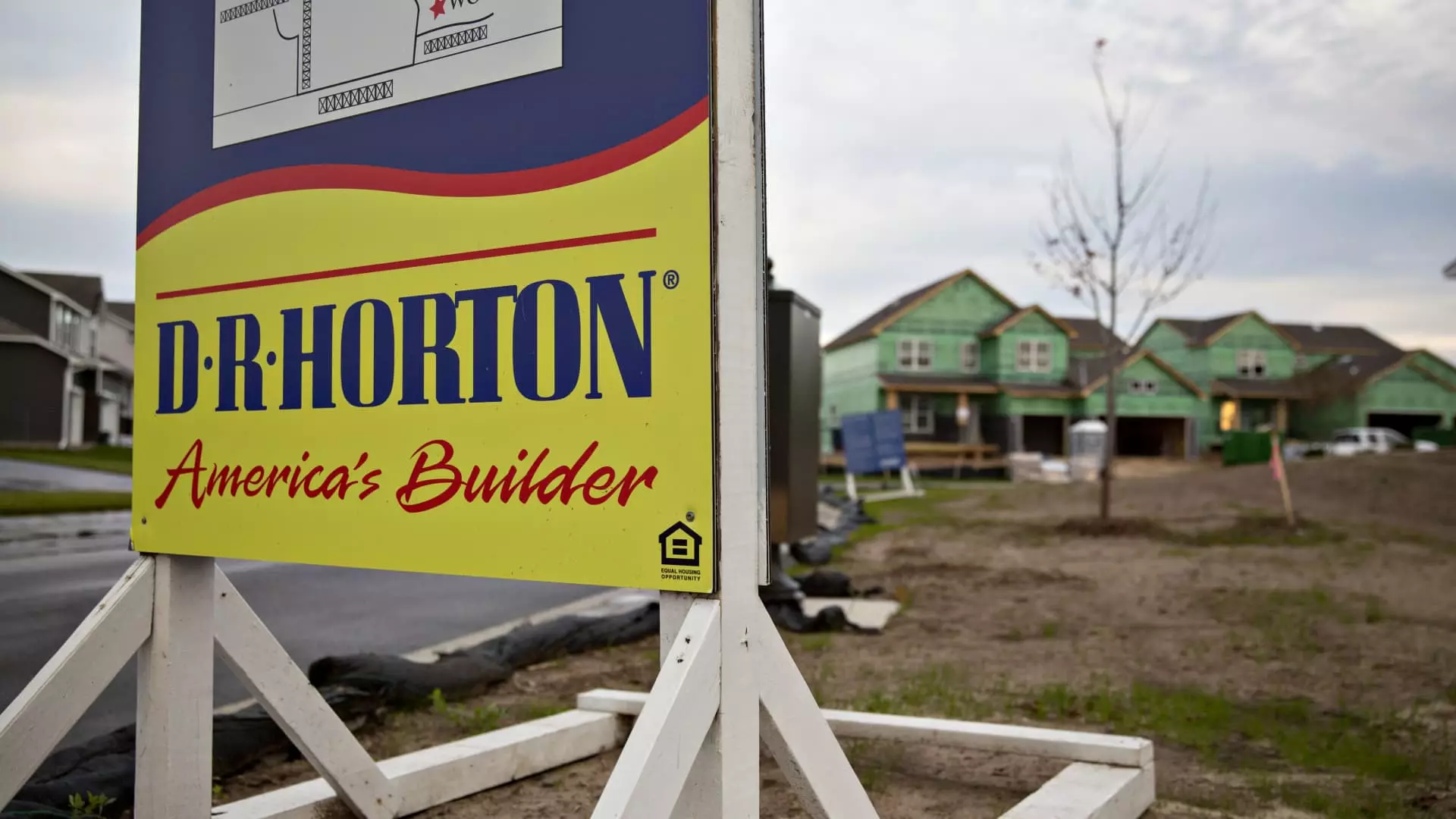Recent reports indicate an unsettling trend for both consumers and the broader economy, largely stemming from interest rate fluctuations, as evidenced by D.R. Horton’s financial performance. The Arlington, Texas-based homebuilder’s quarterly earnings significantly lagged behind Wall Street expectations, which resulted in an alarming 11% drop in their stock price. This decline underscores the growing anxiety among investors about the potential ramifications of current interest rates on the housing market.
CEO David Auld pointed out a crucial aspect of the current economic climate: the volatility in interest rates is causing many prospective homebuyers to adopt a cautious approach. Although mortgage rates have slightly receded from peak levels, the prevailing sentiment among potential buyers is that rates might decrease further by 2025. This expectation could ultimately deter immediate purchasing decisions, thereby stalling market activity.
As it stands, the average rate for a 30-year fixed mortgage hovers around 7%, a notable improvement from the highs of 8% seen last October. Nevertheless, this figure remains the highest since early July. Mortgage rates are intrinsically linked to the yield on the 10-year Treasury note, which has experienced a recent surge. It’s essential to note that bond yields move inversely to their prices; as yields rise, bond prices typically decline.
Despite the Federal Reserve’s efforts to stimulate the economy through a series of rate cuts beginning in September, the impact on mortgage rates and the housing market has been minimal. The juxtaposition of robust economic data and lingering uncertainty about the central bank’s future rate adjustments has contributed to fluctuations in the Treasury market, exemplifying a dissonance that is unsettling for consumers.
In light of these dynamics, D.R. Horton has revised its revenue projections for the fiscal year ending in September 2025, forecasting between $36 billion and $37.5 billion—significantly below the FactSet consensus estimate of $38.91 billion. This revised outlook reflects broader apprehensions about the housing market’s trajectory and casts doubt on the overall economic stability in the sector.
The quarterly earnings report revealed a troubling performance, with D.R. Horton posting earnings of $3.92 per share on $10 billion in revenue. These figures fell short of analysts’ expectations of $4.17 in earnings per share and $10.22 billion in revenue, leading to a downward spiral for not only D.R. Horton’s shares but also those of other major homebuilders. Companies like Toll Brothers, Pulte Group, and KB Home all faced declines of approximately 4%. Furthermore, the S&P Homebuilders ETF (XHB) mirrored this downturn, losing around 3%, while home improvement giants Home Depot and Lowe’s slipped by around 2%.
The emerging challenges faced by D.R. Horton serve as a microcosm of the larger economic environment. The interplay between interest rates, consumer confidence, and economic projections remains a crucial narrative to monitor, as it holds significant implications for consumers and investors alike in the ongoing fluctuations of the housing market.

